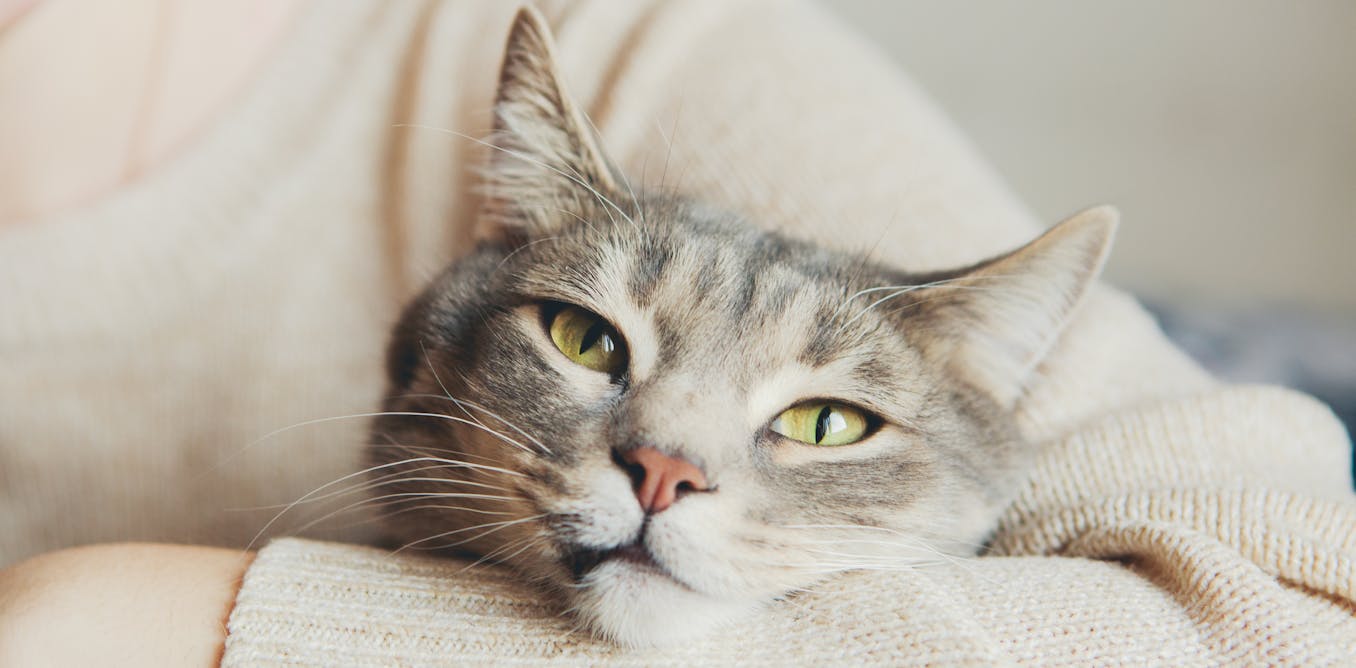[ad_1]
As we grieve the dearth of a pet, we would not be the one ones feeling the ache. Evaluation is displaying that cats who’re left behind when one different animal of their residence dies might very effectively be mourning along with us.
Grief is a well-documented human response to loss – nonetheless its roots is also far more historic as some scientists think about it superior in extinct species of individuals. Corvids – members of the crow family – primates, and marine mammals like dolphins and whales, have all been observed to differ their behaviour when one in all their very personal dies, from carrying ineffective offspring for days, to staying shut by the physique, as if preserving vigil.
One concept is that grief is a by-product of the pure stress response to separation seen in social animals. Consistent with this idea, distress and looking out behaviour most certainly superior to encourage animals to reunite with misplaced group members, which was useful for survival. These responses persist when separation is eternal, like in dying, ensuing within the enduring ache of grief.
Whereas there’s a great deal of evaluation on how dropping a pet impacts individuals, so much a lot much less is thought of how cats take care of loss, one factor present evaluation by US-based comparative psychologists Brittany Greene and Jennifer Vonk investigated.
Not like typical social species, the cat’s wild ancestor was largely solitary. Nonetheless, domestication has reshaped their behaviour, enabling them to dwell in groups and sort social bonds.
Inexperienced and Vonk’s study signifies that cats can grieve the dearth of a fellow pet. Of their study of 452 cats, many displayed indicators of distress, equal to elevated attention-seeking, vocalising and lowered urge for meals, following the dying of a companion. The study found that the vitality of the bond between the animals, their time spent collectively, and every day interactions have been key parts on this grief-like behaviour.

Julia Cherk
This study builds on earlier evaluation by animal welfare researcher Jessica Walker and her crew in 2016, which examined how cats and canine react to the dearth of a companion. Walker’s study, carried out in New Zealand and Australia, found that 75% of surviving pets confirmed noticeable behavioural changes, with cats displaying elevated affection, clinginess and anxiety-related vocalisations.
It have to be well-known that every analysis relied on proprietor perceptions to judge changes in pet behaviour, which presents a potential draw back. Whereas pet householders are generally basically probably the most attuned to delicate changes of their animals, their observations could also be influenced by their very personal grief and emotional state.
Is it truly grief?
There could also be one other clarification for changes in behaviour the home house owners in analysis observed after a companion’s dying. The presence of a deceased animal can signal hazard throughout the setting, inflicting pets to differ their behaviour as a safety measure, barely than being a grief response.
Although this hasn’t been studied in residence cats, 2012 evaluation on western scrub-jays revealed that seeing a ineffective member of their species can speedy alarm calls and conduct geared towards avoiding hazard, very like how they’d react to a predator.
Equally, a 2006 study on bumblebees found that they’ve been a lot much less vulnerable to go to flowers that contained a freshly killed bee or its scent, most certainly reducing their very personal hazard of being attacked.
Which means that what we interpret as grief may, in some cases, be a survival instinct. Some behaviour the home house owners throughout the analysis seen after the dying of a companion, equal to their cat hiding or looking for elevated vantage elements, might help this idea.
A question chances are you’ll be asking is whether or not or not cats mourn the deaths of their householders. Though we need to suppose that our cat would mourn our dying, on the minute, we merely don’t know. There seems to be little to no evaluation on how cats react to the dying of their proprietor.
One unsettling behaviour that has been successfully documented upon dying of an animals’ proprietor is the consumption of their stays. Whereas cats normally get a nasty fame for this, canine lovers ought to look at that every cats and canine have been recognized to scavenge human stays.
In precise truth, pet canine are further recurrently documented doing so. Some scientists suggest this behaviour may stem from hunger, however it has moreover occurred when meals was plentiful.
One different concept, increased aligned with the idea of grief, is that scavenging may start as an attempt to revive an unresponsive proprietor. When nudging or licking doesn’t work, the animal may escalate to nipping or biting in an effort to rouse them.
So the jury continues to be out on whether or not or not cats grieve in response to loss, or if are they responding to changes of their setting that we have however to completely understand.
[ad_2]
